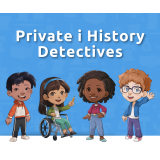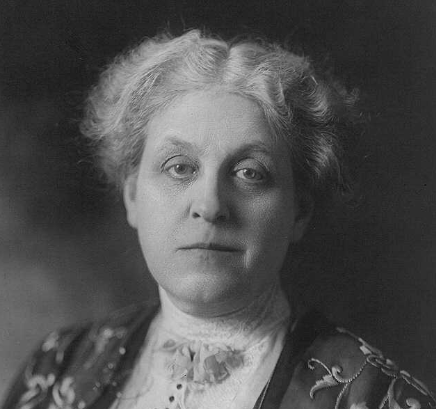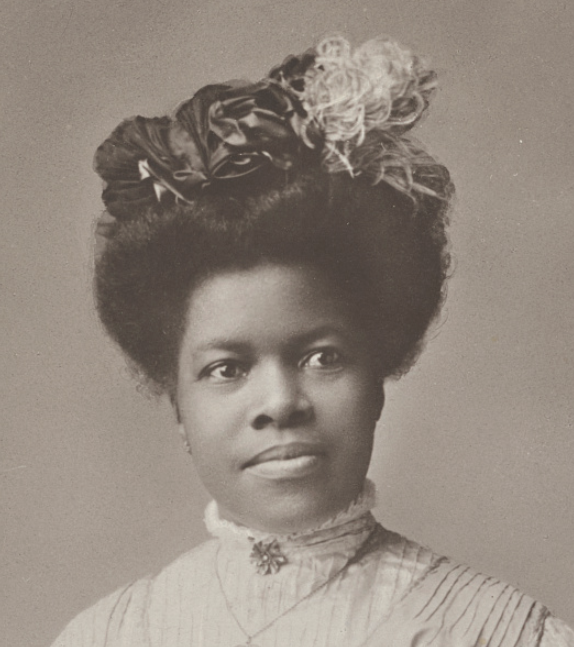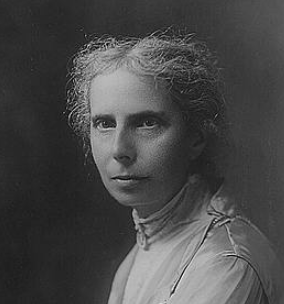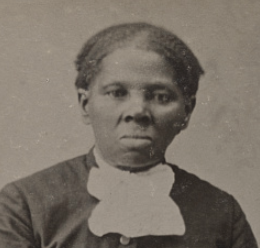Empower your students to become the future leaders of our democracy! With our new Private i History Detectives Civic Virtues Collection, students explore the lives of inspiring figures who championed civic values before them.
Use these four new units to strengthen your classroom community and explore what it means to practice perseverance, generosity, and civic-mindedness. These inquiry-based units use primary sources to introduce students to historical figures like Katherine Johnson, Wilma Rudolph, Clara Barton, Robert Smalls, and Benjamin Franklin.
Through these standards-aligned and ready-to-use lessons, students discover the power of civic virtue and recognize examples in primary sources and historical narratives.
Kickstart the school year with iCivics! As you prepare to welcome students back into the classroom, we have your back with engaging civics and election-related resources just for elementary school teachers!
We invite you to a free webinar with Natacha Scott, iCivics’ Director of Educator Engagement, on August 22 from 7:00 to 8:00 p.m. ET.
Join us for:
- A tour of our new website, launching soon! It has been updated and upgraded to be more user-friendly. We’ll walk you through it.
- An exclusive preview of yet-to-be-released resources
- An overview of our Election HQ and support for teaching elections to young learners
Guide elementary students through exciting historical investigations to build content knowledge and critical thinking skills with Private i History Detectives and discover why do we have so many governments.
In this inquiry-based unit, students learn about the three levels of government, including local government. They will participate in a scenario in which they will explore how to navigate local government.
Students will also learn how life under British rule and the Articles of Confederation shaped what Americans wanted in their new government.
Private i History Detectives Unit: Why Do We Have So Many Governments?
Happy New Year to all of you! We know that things are starting a little rocky, but hoping things will settle soon and we'll keep working our way back to a new normal!
All of you have been a part of the beginning and development of History's Mysteries, so we wanted to share some special and great news with you!
1. We have four NEW units and three NEW "Introduction to Inquiry" mysteries available for use on our History's Mysteries website!
Our newest units include:
Grade 2: How does culture impact the way people live? (with a focus on forced migration and the story of the Clotilda Africans) (4 mysteries)
Grade 3: How did women participate in the American Revolution? (3 mysteries)
Grade 4: Why would people live in the Northeast? (4 mysteries)
Grade 5: Why is due process so important to American justice? (3 mysteries)
Our three newest Introduction to Inquiry Mysteries are:
K-1: What can you learn from a hat? (focus on what we can learn from the hats people wear)
2-3: What are these children doing? :(focus on a photograph of young people out of school during the 1918 influenza pandemic)
4-5: What can we learn from someone's pockets? (focuses on the items in President Lincoln's pockets on the night he was assassinated)
2. We have partnered with iCivics to improve and expand History's Mysteries⭐⭐⭐ and they want your feedback!
iCivics has acquired History's Mysteries and is working hard to review all of our materials and improve them. Read the announcement! We are so excited about what they are going to do to make our materials more accessible, easier to use and responsive to your feedback. We will continue to work with them to develop new curriculum units in the future.
At this time, iCivics is looking for feedback and they mean it! They really want to make History's Mysteries meet your needs. If you would like to provide feedback about your experience with History's Mysteries, they will take it seriously. This is your chance to tell them what you want to see in the improved curriculum. Nothing will change on our website until next year, so don't fear. History's Mysteries materials will remain free and accessible for everyone, always.
History's Mysteries will become Private"i" History Detectives (because of copyright issues with the HM title)! Please take the time to fill out this survey if you would like to give them feedback. It's a great opportunity to share your experience and advice. Here is the survey from iCivics!
3. Want to take your inquiry learning further? Join us this Spring for the History's Mysteries Institute!
This course runs from February 28 to April 4th. Participants can elect to earn 3 graduate credits or 67.5 Professional Development Points. This five-module, online workshop will deepen teacher skills with integrating social studies, language arts, and inquiry in remote and in-person learning using History’s Mysteries: Historical Inquiry for Elementary Classrooms. Educators will practice adapting the teacher-friendly click-and-play History's Mysteries curriculum, with editable slides and materials, to meet the needs of their students and teaching formats. Teachers will be introduced to core principles behind the selection of materials and presentation approach for the History’s Mysteries curriculum. Participants will receive coaching on extending the History’s Mysteries approach to other content, integrating picture books and other elements of the ELA curriculum into engaging, inquiry skill building activities. Participants will be prepared to support peers in their school and district.
Educators will have a choice between customizing one unit for classroom use addressing their unique classroom needs and creating a new History’s Mysteries-style lesson on a vital topic. If you are interested or know someone who might be, here is the Registration Information
4. Do you know someone who needs an Introduction to History's Mysteries?
Spread the word for educators new to History's Mysteries that we have an introduction to History's Mysteries Session on February 9th from 7:00-8:30 PM. This is good for new users and also good for those who have been introduced before. We will be introducing our new resources as well. Join us if you want to know more about what's new at History's Mysteries, especially if you took our training in 2020! Let us know if you have questions! Here is the Registration Info.
We hope you have a good start to the new year! As always, a HUGE "thank you" to all of you for your continued feedback and support. Please reach out with any questions, ideas or concerns. We love to hear from you!
Take care!
Kelley Brown and Laurie Risler

In this new History's Mysteries Introduction to Inquiry, young learners engage in inquiry to answer the question, "What can we learn from a hat?" While learning some of the skills and strategies historians use to learn about the past, students will look at images of historical and modern hats. Throughout the inquiry they will discover that the hats people wear provide clues about what people do for work, where they work, how they live, the environment where they work and the risks of certain activities. Check it out!
Photo credit:
Highsmith, Carol M, photographer. Men's straw hats, hanging inside the farmhouse at Yoder's Amish Home, an authentic Amish farm that began accepting visitors innear Walnut Creek in central Ohio, along the "Amish Country Byway". United States Holmes County Walnut Creek Ohio, 2016. -10-08. Photograph. https://www.loc.gov/item/2016632315/.
Testimonials
- I love that there is new info on the site daily!
- I had a wonderful time working with the Library of Congress and learning about all of the resources at my fingertips!
- The TPS Teachers Network has an equal exchange of ideas. You know it's not a place where you're being judged.
- My colleagues post incredibly fine resources and ideas....the caliber of the suggestions and resources make me feel that I take a lot from it. It's a takeaway. And I hope that I can give back as much as I get.
- Going into this school year, I have a fantastic new resource for my own instruction and to share with my colleagues!
- I am very glad that I discovered the TPS Teachers Network through RQI. Great resources can be hard to find out there on the internet!

